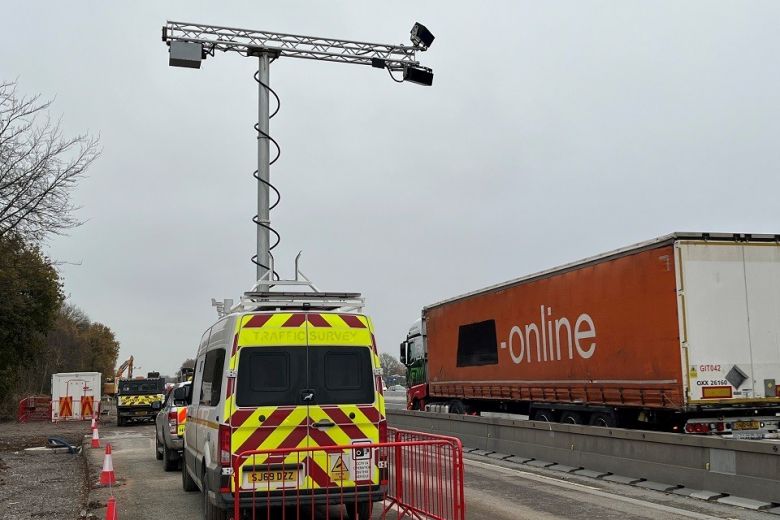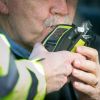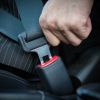This is the highest number at a single site in a study which has visited numerous sites across the Midlands and South West.
National Highways is the wholly government-owned company responsible for modernising, maintaining and operating England’s motorways and major A roads, and carried out the study to track offences from drivers on the motorway network.
Although it is currently a pilot programme, it may be expanded to cover more areas of England.
The study showed, that at one point, a high-visibility camera placed in the roadworks south of junction 23 of the M6 at Haydock, caught an offence every 90 seconds.
This compares to an average at all other sites of one every six minutes.
National Highways worked with engineering company AECOM on the pilot project to collect data on offences as part of its work to boost safety.
The camera system used to catch these drivers utilises artificial intelligence (AI) to photograph offences. Once captured, it is sent to National Highways and the crime is then verified by at least two people.
Jamie Hassall, National Highways manager for the data collection project, commented: “We wanted to find out whether driving through a substantial section of roadworks with barriers, a reduced speed limit and other traffic management would mean drivers and passengers modifying their behaviour.
“The findings are disappointing to say the least with drivers spotted using a mobile phone almost every five minutes and lots of drivers and passengers simply not bothering to belt up.
“Hopefully, these results will be a wake-up call to motorway users – especially as we head into the busy Christmas and New Year travel period.”
The study took place over the first two weeks of the month and show a worrying trend.
However, this research forms part of National Highways’ commitment to road safety.
There is currently a long-term strategy that is looking to reduce the number of people killed or seriously injured on England’s strategic road network to zero by 2040.
Currently, 25-30% of road deaths each year are linked to drivers and passengers not wearing a seatbelt.
Also, over 100 people are killed or seriously injured in a collision every year, when the driver was found to have been distracted while behind the wheel.
Dr Jamie Uff, AECOM Technical Director, said: “We ran six short data collection sessions along the southbound M6 just outside National Highways’ regional operations centre at Newton-le-Willows and the numbers detected were far higher than expected.
“The numbers of people killed or seriously injured as a result of these behaviours remain high. The technology AECOM is deploying makes detection straightforward and is providing valuable insight to the police and policy makers on the current level of road user behaviour.
“Almost 60 percent of the mobile phone offences spotted were committed by car drivers, while seat belt offences were typically an issue associated with commercial vehicles, with 86 percent of the offences being committed by van or HGV occupants.”
Should this technology be introduced across England? What more can be done? Leave your comments below.

RAC sale – up to 33% off*
• Roadside cover from £5.29 a month†
• We get to most breakdowns in 60 mins or less
• Our patrols fix 4/5 breakdowns on the spot











